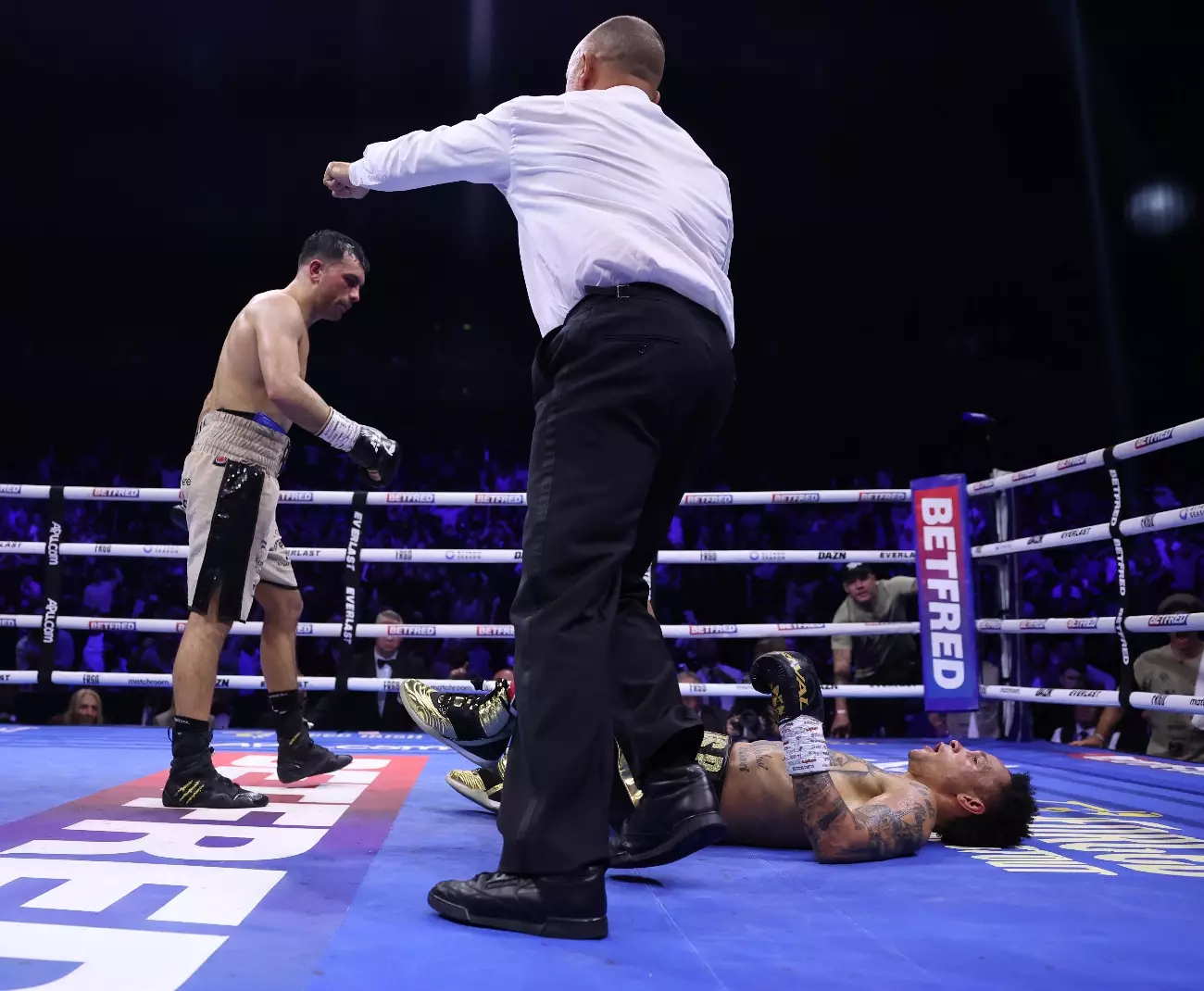The Turmoil of Matchmaking in Boxing: Eddie Hearn, Oscar De La Hoya, and Regis Prograis’ Career Crossroads
In the thrilling yet unpredictable world of boxing, it’s often the verbal exchanges outside the ring that capture as much attention as the matches themselves. Recently, a public spat erupted between two of boxing’s most recognizable promoters: Eddie Hearn and Oscar De La Hoya. This came after De La Hoya criticized Hearn’s matchmaking decisions, suggesting they have jeopardized the career trajectory of Regis Prograis. Prograis, once revered for his raw talent and aggressive style, now finds himself at a pivotal point after a disappointing loss to Jack Catterall in Manchester.
For fans who have followed Prograis’ career, the recent developments are both surprising and concerning. With an impressive record of 29 wins and 3 losses, Prograis has faced hurdles that have sparked debates about his future in the sport. His recent defeat was his second in a three-fight deal with Hearn’s Matchroom, following a victory against Danielito Zorrilla but preceding a setback against Devin Haney. As he grapples with these challenges, questions about his age and ability to maintain competitiveness loom large.
Eddie Hearn, standing firm amidst criticism, argues that Prograis willingly embraced risks by fighting in the UK rather than opting for safer alternatives. While financial incentives are cited as compensation for such risks, the emotional and professional impact of back-to-back losses is undeniable. For a fighter of Prograis’ stature, perceived mismanagement can accelerate a decline, especially in a landscape teeming with emerging talent eager to seize their moment.

Key Takeaways
- The dynamics between promoters can significantly influence a boxer’s career path.
- Matchmaking decisions carry financial and emotional stakes for fighters.
- Regis Prograis faces critical decisions about his boxing future.
The Promoters’ Rivalry
The clash between Eddie Hearn and Oscar De La Hoya is emblematic of broader rivalries that exist within fight promotion. Hearn’s retort to De La Hoya’s claims underscores not only personal grievances but also exposes the competitive nature inherent in promoting boxing. By labeling De La Hoya as “the saltiest man on the face of this earth,” Hearn highlights the deep-rooted tensions that often accompany promotional disputes in the sport.
Critics might concede that De La Hoya’s critique holds weight, especially when considering historical instances where fighters either thrived or floundered based on their management’s strategic decisions. The delicate art of matchmaking requires balancing potential risks with opportunities for growth and success. When done poorly, it can derail even the most promising careers and damage the reputations of those involved in guiding them.

The Stakes for Fighters
Beyond the promotional war of words, lies the real question: what does all this mean for Regis Prograis? Positioned at a crossroads in his career, Prograis must decide whether to recalibrate his approach or continue pursuing high-stakes matches in hopes of reclaiming past glory. These choices extend beyond individual fighters; they reflect broader concerns about how promoters prioritize financial gain over fighter welfare.
Promoters like Eddie Hearn play a pivotal role not only in shaping fighters’ careers but also their legacies. A poor matchmaking decision can tarnish both a fighter’s prospects and the promoter’s reputation. As such, navigating this complex web requires careful consideration of each move made within and outside the ring.
Final Thoughts
As this saga unfolds, attention will inevitably focus on Regis Prograis’ next moves. Will he opt for cautious recalibration or continue pursuing ambitious bouts? While Eddie Hearn and Oscar De La Hoya may persist in their verbal sparring, the more pressing concern remains centered on fighters like Prograis. Their paths forward are fraught with uncertainty but serve as poignant reminders of the delicate balance needed between ambition and caution—both inside boxing rings and beyond them.
This ongoing narrative serves as an insightful lens into not just individual careers but also broader themes affecting boxing today—the intersection between personal ambition versus collective responsibility shared by promoters, managers, fans alike when navigating complex landscapes filled with triumphs alongside tribulations alike.
boxing promotion
Eddie Hearn
Oscar De La Hoya
Regis Prograis
matchmaking
career crossroads


Leave a Reply